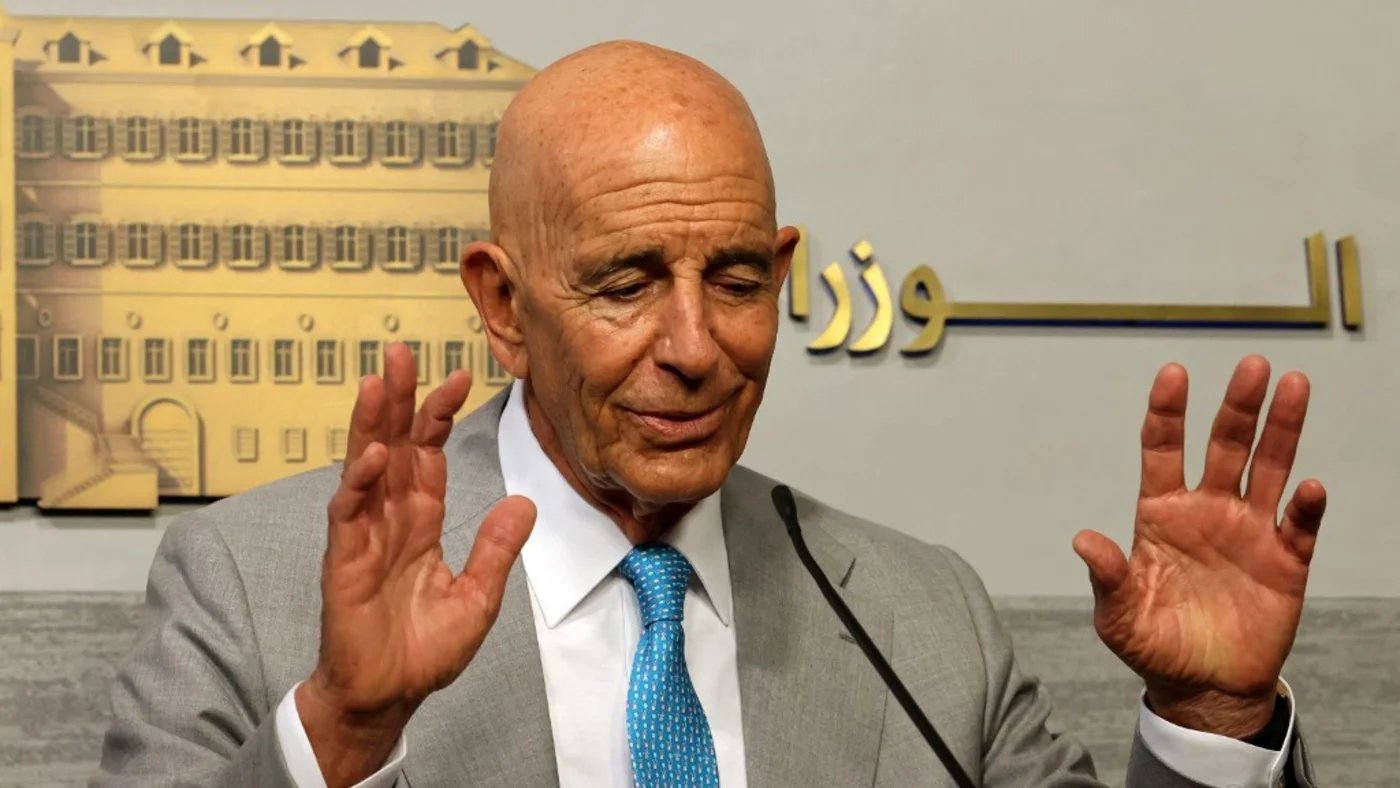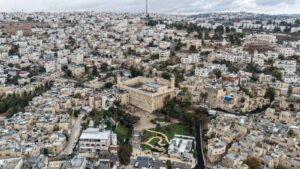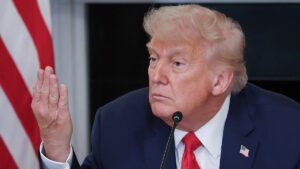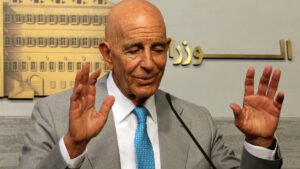ABD Elçisi Tom Barrack, Türkiye’nin bölünmesini planlamakla suçlandı
Billionaire Diplomacy in Turkey: Tom Barrack’s Controversial Tenure as U.S. Ambassador
Billionaire Tom Barrack, who transitioned from business to diplomacy, made headlines when he arrived in Ankara in May as U.S. President Donald Trump’s ambassador to Turkey. His emotional speech resonated with many, as he expressed a desire to strengthen the alliance between Turkey and the United States. However, just two months into his tenure, Barrack has become a polarizing figure in Turkish politics, raising questions about the future of U.S.-Turkey relations.
Tom Barrack’s Role in U.S.-Turkey Relations
Upon his arrival, Barrack emphasized the importance of the U.S.-Turkey alliance, stating, “I come with a really simple message from President Trump: his desire to raise the level of the alliance between Turkey and the United States to where it rightfully belongs.” With his expanding portfolio that now includes Syria and Lebanon, Barrack aligns with Ankara’s priorities. Turkish officials are optimistic that his close ties to Trump could help resolve pressing issues, including the stalled F-35 fighter jet deal and sanctions related to Turkey’s purchase of Russia’s S-400 missile system.
Public Perception of Barrack in Turkey
Despite initial optimism, public opinion in Turkey has shifted dramatically. Newspapers and political influencers have launched a campaign against Barrack, accusing him of attempting to undermine the nation. This backlash marks a significant departure from previous anti-American sentiments, as this time, criticism is coming from opposition voices rather than government media.
Controversy Over Misquoted Remarks
The controversy surrounding Barrack intensified following an interview with Turkey’s Anadolu news agency. He referenced the Ottoman Empire’s millet system, which historically managed religious communities. He argued for a new dialogue between states and cultures, using Izmir as an example of diverse communities coexisting. However, his comments were quickly misinterpreted, leading many to believe he endorsed the millet system as a model for modern Turkey, a statement he never made.
- Key Takeaways from the Controversy:
- Misinterpretation of Barrack’s comments led to public outcry.
- The millet system evokes negative memories for many Turks.
- The backlash highlights existing tensions in U.S.-Turkey relations.
Political Reactions to Barrack’s Comments
Some Turkish politicians have taken Barrack’s remarks as a threat to Turkey’s national identity. A former parliamentarian accused the U.S. of attempting to divide Turkey into a religiously governed state, while others view Barrack’s suggestions as a push towards a fragmented nation reminiscent of the Ottoman Empire’s decline.
Barrack’s Ongoing Diplomatic Challenges
As Barrack navigates these turbulent waters, Turkey is simultaneously engaged in peace talks with the PKK (Kurdistan Workers’ Party). The PKK recently ended its armed struggle, raising concerns about the future of Turkey’s unity. This political backdrop complicates Barrack’s mission, as his comments are scrutinized for potential implications on Turkey’s status as a nation-state.
Conclusion: The Future of U.S.-Turkey Relations
Tom Barrack’s tenure as U.S. ambassador to Turkey is marked by both hope for strengthened alliances and significant controversy. As he continues to face challenges in his diplomatic role, the future of U.S.-Turkey relations remains uncertain.
Call to Action: What are your thoughts on Tom Barrack’s impact on U.S.-Turkey relations? Share your opinions in the comments and explore related articles for more insights on this evolving diplomatic landscape.
For further reading, check out Turkey’s Complex Relationship with the U.S. and The Ottoman Empire’s Legacy in Modern Turkey.







